What Does Interfaith Engagement Mean to Religious Millennials? Response from Brittani Magee
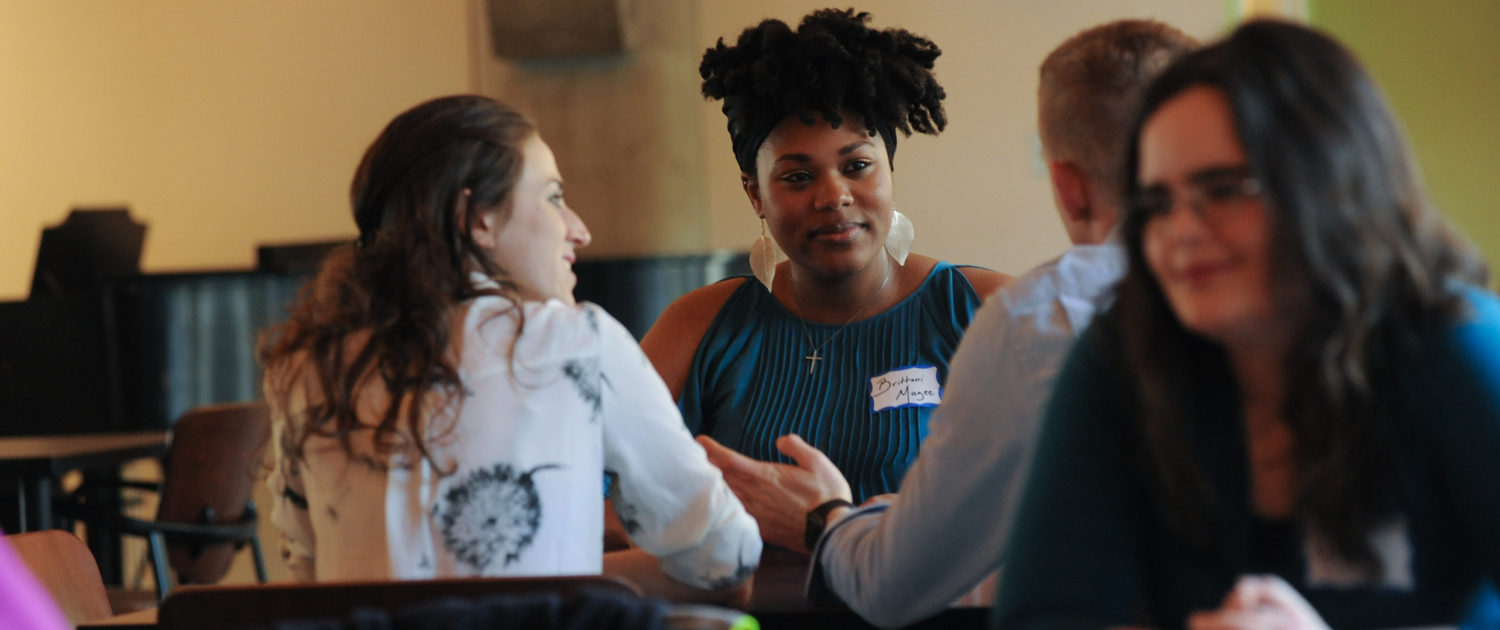
RESPONSE FROM BRITTANI MAGEE
In a world that is more interconnected than any other time in human history, I have observed that many people continue to perceive “the other” in stereotypical or uninformed ways. Nigerian writer, Chimamanda Ngozi Adichie said it best in her TED Talk, “The Danger of a Single Story,” where she notes that the problem with stereotypes is not that they are untrue, but that they are incomplete. They make one story become the only story. While this observation can be applicable in many contexts, it is particularly accurate in the context of faith. As a Christian seminary student, I have experienced my share stereotypes, harsh critiques and uncomfortable conversations. On many instances when I tell someone that I am a theology student, somehow in their mind I transform from being an average person to embodying every wrong thing that the church has ever done. I must also be an expert on the most minute details of scripture and be prepared to provide definitive insight into the most polarizing of topics.
So often in these moments I wish that the person would be willing to pause and hear what my faith means to me. From their perspective, faith and belief systems are corrupt and divisive. On the contrary, I have found that faith has brought me a joy, freedom and compassion for others that I would not have thought possible. In place of the bitterness and self-loathing that shrouded my mind as an adolescent, when I felt God’s presence for the first time, it was like breathing air after drowning for so long. What humbled me was not just that God saw me and understood me when no one else did, but that God loved me enough not to leave me where I was. What has followed since then has been a journey filled with highs and lows, victories and defeats, joys and sorrows. Yet unlike before, I am not journeying by myself; God is with me in my moments where I am soaring among mountain tops but also when I have reached the deepest pit of despair. That is what my faith means to me.
Consequently, I find that it is imperative that I engage in interfaith dialogue with others. Not as a means of arguing or coming to a specific conclusion, but to allow a space where the voices and experiences of individuals in other faiths can be shared. By simply allowing our perceptions of the “other” to be gleaned from the media, we reflexively will come to simplistic conclusions that perpetuate stereotypes, fear and mistrust. Faith has a way of not only shaping our perceptions of the self but also how we perceive and interact with the world. While we may not agree with each other, I believe that having respect and compassion for others should be the lens from which we interact with our fellow humans. As Sojourner Truth so aptly stated, “Religion without humanity is very poor human stuff.”
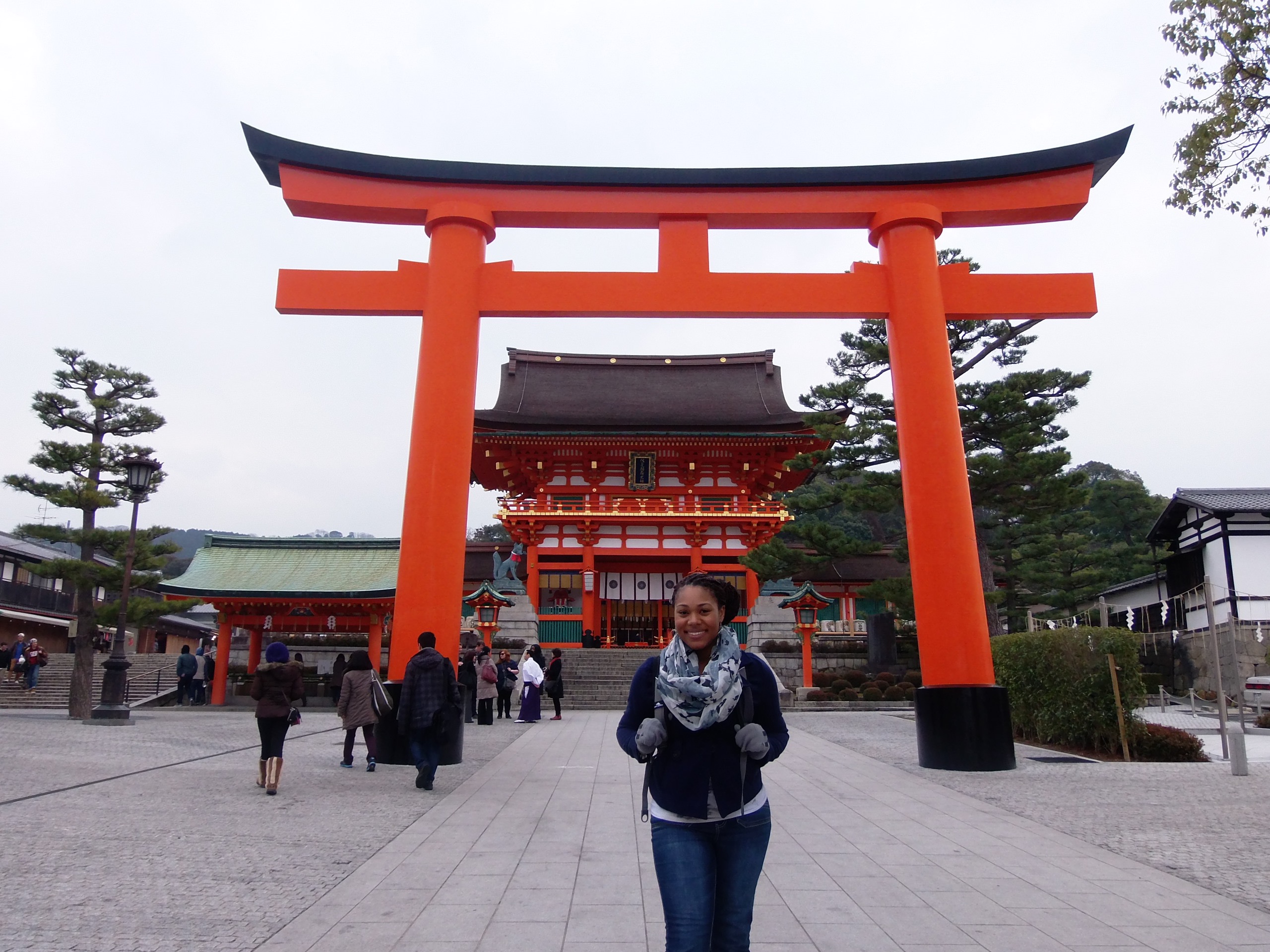
Brittani Glynn Magee is a third year Masters of Divinity student at Emory University. Magee attended Agnes Scott College as an undergraduate majoring in International Relations, where she developed an interest in studying how women contributions to peace negotiations impact reconciliation in post conflict societies. Both her classroom and study abroad experiences have helped her identify various patterns and connections between women empowerment and communal reconciliation. Her master’s program has enabled her to pursue a theological study of justice and peacebuilding while also actively addressing the needs of marginalized communities, such as refugees and women. One such way she hopes to achieve this is through the power of storytelling as a method to bridge the cultural and religious gaps within divided communities. In addition to her interests in post-conflict reconciliation and women empowerment, Magee enjoys painting canvases and playing with her Yorkie puppy, Koda.
Atlanta Spirituality Conference with Rev. Dr. Barbara Brown Taylor focuses on Living with Religious Difference
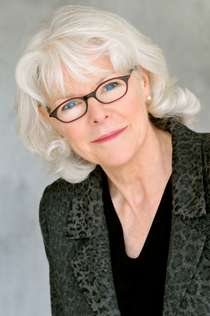 The Cathedral of St. Philip will be hosting a Spirituality Conference featuring the Rev. Dr. Barbara Brown Taylor on October 28 entitled, Holy Envy: Learning to Live with Religious Difference.
The Cathedral of St. Philip will be hosting a Spirituality Conference featuring the Rev. Dr. Barbara Brown Taylor on October 28 entitled, Holy Envy: Learning to Live with Religious Difference.
This one day conference will explore how religious pluralism challenges and deepens Christian identity in a world of many (and no) faiths. More about this event:
“Fifty years ago, only international explorers, foreign missionaries, or soldiers deployed overseas encountered people of vastly different faiths. Now anyone with a computer can go on a virtual Hajj to Mecca or learn meditation from a Zen master online. Spirituality has become as global as trade, raising all sorts of questions for people who never had cause to think about how many ways there are to approach the divine. What is a Christian to do? Barbara Brown Taylor has some ideas, based on teaching world religions to college students over the past twenty years. Join us for an introduction to “holy envy” and a few other rules of religious understanding.
Barbara Brown Taylor is a New York Times best-selling author, college professor, and Episcopal priest. Her first memoir, Leaving Church, won a 2006 Author of the Year award from the Georgia Writers Association. Her last book, Learning to Walk in the Dark, was featured on the cover of TIME magazine. She has served on the faculty of Piedmont College since 1998 as the Butman Professor of Religion and has been a guest speaker at Emory, Duke, Princeton, and Yale, as well as a guest on SuperSoul Sunday with Oprah Winfrey. Taylor and her husband Ed live on a farm in the foothills of the Appalachians, sharing space with wild turkeys, red foxes, white-tailed deer, and far too many chickens.”
Thomas Kemper: “Love the Neo-Nazis?”
Many of us were stunned by the hatred that spewed forth from Charlottesville as white supremacists demonstrated that racism remains far more virulent in our society than many of us realized. And the neo-Nazi chants of “Jews will not replace us” made it abundantly clear that this orgy of hatred was not limited exclusively to racial bigotry.
In a recent blog posted to this website, Thomas Kemper, General Secretary of Global Ministries of the United Methodist Church, described a dramatic demonstration of interfaith collaboration as he and people of many different faiths endured a bombing that killed 40 people in the Istanbul airport last year. More recently, he has shared the emotions he experienced as the swastika was unfurled in Charlottesville. His statements are particularly insightful because he is German. When Thomas compares the Charlottesville incident with Germany’s past, he knows that of which he speaks. His statements authenticate the gravity of the situation upon us.
Love the Neo-Nazis?
Thomas Kemper, General Secretary of Global Ministries of the United Methodist Churchs
As an international agency, the United Methodist General Board of Global Ministries, which I lead, seldom makes statements about events in the United States. Yet as a Christian and as a German I feel compelled to publicly register my shock at the mid-August scenes from Charlottesville where blatant and unashamed Nazi images were prominent and shouts of “blood and soil,” the Nazi “Blut und Boden,” heard—all symbols of evil Nazi ideology. And, young Americans stretched out their arms in the “Heil Hitler” salute and waved swastikas—in the United States of America, in Virginia, in 2017.
The heavily armed militia of the “Unite the Right” rally is a jarring reminder for me of Hitler’s SA marching through the Brandenburg gate in the 1930s at the end of the Weimar Republic and igniting the Nazi reign of terror and death. I am not saying the scenes from Charlottesville are comparable to those days but I could not help but to associate Charlottesville with moments during the Weimer era in Germany. The images from those days and the reports from Charlottesville are so strikingly similar.
It is inexplicable to me how such hate and violence can be expressed in such a public way in the United States today. It is also distressing to Christian friends in Germany who honor with affection the American example of democracy and openness. Retired German United Methodist Bishop Walter Klaiber in a recent letter to friends and colleagues in the United States wrote of the deep sorrow in his heart as he saw the swastika unfurled in Charlottesville. These emotions are so strong because we Germans remain grateful to the American people for liberating our country from Hitler and his fascist regime.
We Germans have a sad history. We know we killed over 6 million Jews and other minorities such as Roma, Sinti, and homosexuals. We are still struggling with this past, reminding our children of it, trying to help them gain familiarity with and perspective on the Holocaust and its horrors. We pray this history may not be repeated and “Wehret den Anfängen,” translated “Resist the beginning” is a call to constant vigilance wherever Nazism and Fascism is rearing its ugly head. For Christians everywhere must stand up to neo-Nazis.
What remains unresolved for me is the question of how the church, including The United Methodist church, must and can react. We cannot tolerate racism, white supremacy, and Nazi hatred. That much is clear, but what about ministry to neo-Nazis—those who are full of fear and anxiety and have lost their way in the world? How do we welcome them, offering God’s transforming grace? Is that possible? I have no idea how that would work or what such an effort might look like. What would the UMC look like if it reached out to neo-Nazis? Is it possible to love neo-Nazis and white supremacists into peace, justice, and mercy?
Alicia Philipp, President of Community Foundation for Greater Atlanta, shares thoughts on Atlanta Interfaith Manifesto
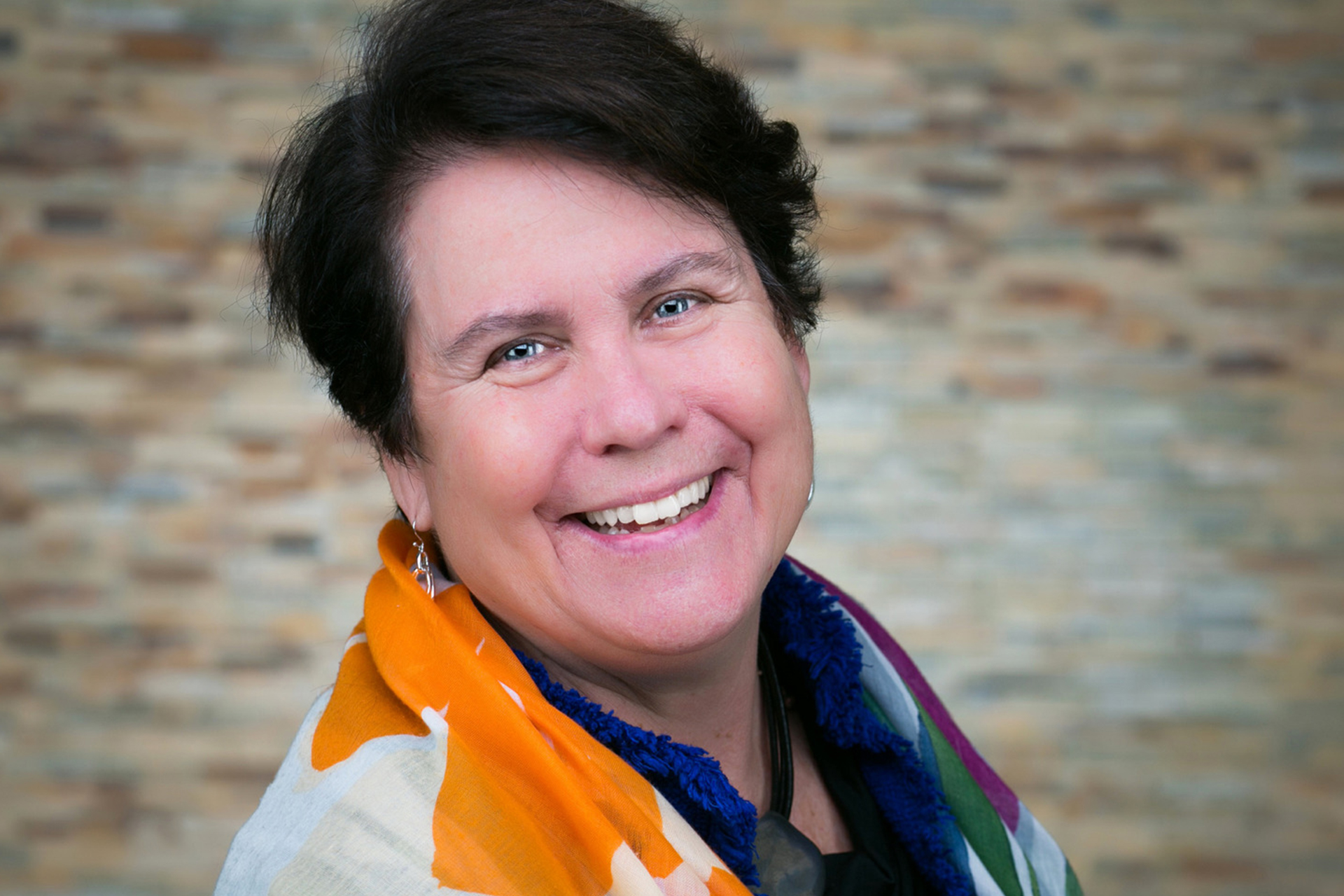 Life is a journey. Our relationship with a higher being is a journey too. Mine is a familiar one in some respects – 16 years of Catholic education, raising my children in the Methodist faith and then a time in the Presbyterian Church. And for a time I had another key experience as part of a teenage Jewish girl’s life as she prepared for bat mitzvah. I was wandering in terms of organized religion but always maintaining a belief in God.
Life is a journey. Our relationship with a higher being is a journey too. Mine is a familiar one in some respects – 16 years of Catholic education, raising my children in the Methodist faith and then a time in the Presbyterian Church. And for a time I had another key experience as part of a teenage Jewish girl’s life as she prepared for bat mitzvah. I was wandering in terms of organized religion but always maintaining a belief in God.
This journey was enhanced even more when I traveled the Middle East under the leadership of Max Miller who tied the people, places and key events in the Abrahamic faiths together. That experience made me realize we are much more like a tree with different branches than different trees – we share so much more than what divides us.
The best ever example of this came when the Community Foundation launched the Higher Ground Group – an amazing, faith-filled and joyful foursome of Rabbi Alvin Sugarman, Rev. Joanna Adams, Rev. Joseph Roberts and Iman Plemon El-Amin. For five years, I sat in meeting rooms and public forums as they discussed the toughest problems in our world and community, always faced through a faith lens. I heard them all quote from the Old and New Testaments and the Koran. They understood and respected each other’s faith while being grounded in their own. It was civil discourse in its purest and finest form.
The Atlanta Interfaith Manifesto is the vehicle that takes this civil discourse, curiosity and belief out to each of us to shape for ourselves in our sphere of influence. You don’t have to be ‘churched’ to join, you simply have to be open to thoughtful dialog that may take you out of your comfort zone, but in a good way if you are open to it! Bring your desire to see a community with cooperation and respect. To get inspired, read some of the blogs done by Higher Ground from 2011 to 2015 here.
ALICIA PHILIPP is president of the Community Foundation for Greater Atlanta, one of the largest and fastest growing philanthropic service organizations in the country. This year she is celebrating her 40th year with the Foundation. When she joined in 1977 its assets were $7 million, today they are approximately $955 million. The Community Foundation strengthens the 23-county Atlanta region by providing quality services to donors and innovative leadership on community issues. They do this by connecting the passions of philanthropists with the purposes of nonprofits doing that work. To that end, in 2016, the Community Foundation received $135 million in gifts from donors and granted out more than $125 million via 7,300 grants to more than 2,400 nonprofits locally, nationally and abroad.
Philipp has served on the board of the Council on Foundations, the Southeastern Council of Foundations, Independent Sector and the National Center on Family Philanthropy. In 2017 she was named to Georgia Trend magazine’s Business Hall of Fame after being on its “100 Most Influential Georgians” list for many years. She has also been named one of the “100 Most Influential Atlantans” by the Atlanta Business Chronicle and the ninth most powerful Atlantan by Atlanta magazine.
Philipp received a bachelor’s degree from Emory University and a master’s in business administration from Georgia State University. She lives in Decatur and has two adult children, both of whom live in Europe.
Hope for the Future: Why the Atlanta Interfaith Manifesto is Important
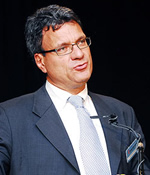 Growing up Methodist, a tiny minority religious community in overwhelmingly Lutheran/Roman Catholic Germany, left me with a strong desire for greater interaction and understanding among religious groups. This feeling was deepened through learning and remembering of the Holocaust and what my forebears had done primarily to Jews, but also to other minorities like homosexuals or Roma and Sinti. I found opportunities to engage in interfaith dialogue as I discovered on the global level The United Methodist Church, a communion of over 12 million people of faith worldwide, is often called upon to promote multi-faith advocacy and action.
Growing up Methodist, a tiny minority religious community in overwhelmingly Lutheran/Roman Catholic Germany, left me with a strong desire for greater interaction and understanding among religious groups. This feeling was deepened through learning and remembering of the Holocaust and what my forebears had done primarily to Jews, but also to other minorities like homosexuals or Roma and Sinti. I found opportunities to engage in interfaith dialogue as I discovered on the global level The United Methodist Church, a communion of over 12 million people of faith worldwide, is often called upon to promote multi-faith advocacy and action.
No experience so solidified my commitment to strong interfaith collaboration as what happened on June 28, 2016, when I was suddenly awakened from a nap in the transit lounge of the international airport in Istanbul, Turkey, by terrorists’ bombs. They killed more than 40 people and injured some 240 others. We ran this way and that, Christians, Muslims, and devotees of other faith, all focused on survival and all sharing a deep desire to get home, to be with our loved ones.
None of us knew what was happening; we knew we were threatened; we knew we needed a way out. As I sought shelter in a kitchen closet with an Asian man with whom I could communicate only with frightened eyes, I knew in a flash that until all faiths and cultures stand together against hate and violence, the world is doomed. It was a moment of solidarity with all people who face uncertain futures—and that is all of us. I felt this common humanity among us, a desire to reach out and take one another’s hands, to change the patterns of violence and xenophobia that plague our world.
This awareness was confirmed as we gathered for evacuation and I spoke with a family returning to Somalia, another going home to Egypt from a trip to Europe, and a young local woman caught in the melee without a passport while seeing off a friend. There was a sense of oneness in the bus that took us to a local hotel.
The Istanbul experience became part of my personal narrative as I, the head of a large international organization, had the opportunity to tell my story to the press and to various live audiences. The importance of interfaith collaboration also became more self-consciously a part of my professional agenda, linked to my organization’s goal of promoting justice, peace, and freedom.
Not long after this experience in Turkey, the agency that I lead, the United Methodist General Board of Global Ministries, moved from New York City to Atlanta where I learned of the Atlanta Interfaith Manifesto. I took the opportunity to join the cause it represents and to contribute to this blog. Given its leadership in civil rights, building on the deep legacy of Dr. Martin Luther King, Jr., Atlanta is a fitting place for the Manifesto, which calls for interfaith cooperation and a reduction of religious bigotry in the state, nation, and world. I am impressed by the number of people of many religious traditions who have signed the Manifesto and I plan to share that opportunity with colleagues and friends.
If people of faith and their leaders do not stand together in affirming a common humanity, there is no hope for the future. We must lead the way.
– Thomas Kemper, General Secretary, Global Ministries United Methodist Church
